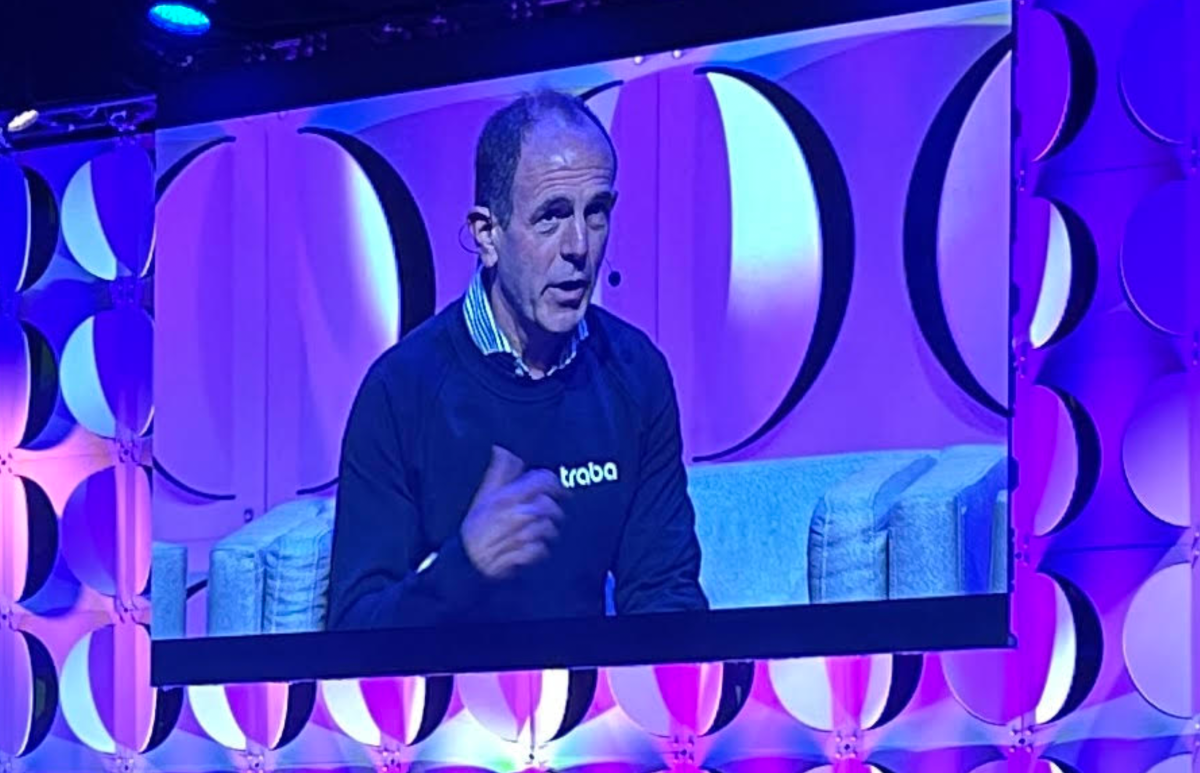Chances are that however busy you are, Keith Rabois is busier. He’s an active investor as a general partner at Founders Fund, the early-stage outfit co-founded 18 years ago by Peter Thiel. He’s also the CEO of OpenStore, the company that he co-founded in 202 to acquire and scale commerce brands on Shopify’s platform. And he has two young children to chase around.
He’s doing it all of it mostly from Miami, to which he moved roughly three years ago and from where Rabois talked with us recently about a lot of things. Among them was politics (he likes U.S. presidential candidates Nikki Haley and Governor Ron DeSantis, but compared Vivek Ramaswamy’s “foreign policy knowledge” to that of his two-year-old). We also talked about why his venture firm cut its newest fund in half, the deal in the Founders Fund portfolio that seems to have him most excited right now, and what he thinks of Marc Andreessen’s latest manifesto. Excerpts from our chat follow, edited for length and clarity. You can hear our longer conversation here.
How big a fund are you currently investing?
That’s a good question because we had announced a large amount that we wound up cutting in half. I don’t remember the official number.
I was wondering when we might see this kind of thing happen. A million years ago, of course, Accel and some other venture firms reduced the size of their venture fund when the market turned.
After we had the commitments, and we were proceeding, we realized that there wasn’t a great way to generate venture returns with that size fund in the world we live in.
How much time are you actually spending at Founders Fund right now, given that you’re not just the co-founder but also the CEO of OpenStore?
I’m a general partner at Founders Fund. That’s my primary activity in life, finding extraordinary entrepreneurs and giving them the advice, counsel and money so they can achieve their ambitions or increase the probabilities of success. Secondarily, I co-founded a company in Miami has roughly about 130 employees where I serve as CEO. Most of the people at Founders Fund have founded companies successfully. . . Obviously, it helps you generate returns because you have proprietary deal flow [but also] your advice and counsel is probably more astute and more insightful. The process of actually running a company or building a company allows you to both commiserate with founders but hopefully also be insightful because you’re suffering through the same challenges.
VCs co-found companies and sometimes run them as CEOs but not forever, typically. Is this a permanent state or will you hand this off to someone in six months?
There are key milestones or key inflection moments, and when we achieve those goals and it becomes more [about] operational excellence and [less about] innovation and problem solving, maybe we consider a different model. But problem solving and confronting challenges with innovative solutions is something I can do really well.
Marketplaces have long been interesting to you, of course. You also co-founded OpenDoor. The first check from your newest fund went to Traba, which is a jobs marketplace that connects hourly workers with fulfillment centers. Is that right? Why is that interesting?
Traba connects hourly workers to mostly “light industrial” is the official vertical, which is typically a warehouse and there are ad hoc events — like a major concert, where you need a lot of workers. Light industrials have massive markets — about $50 billion a year — and very few people have built products to serve that industry. Light industrial depends on variable staffing, meaning during peak season. Forty percent of all e-commerce occurs during the holiday season, so it doesn’t make sense if you’re running a warehouse to have full-time employees for the entire year, so they need variable labor. And there are other unique features and value propositions that business customers require in this vertical, and Traba is doing very well at defining it. Then you expand from there.
You just led Traba’s Series B round, but it also raised a Series A last year led by your former employer, Khosla Ventures, and Founders Fund joined that round.
Our history with Traba goes back to approximately June of 2021, when we led the seed financing . . .this is the third time Founders Fund will be investing [and at a] significant increase in valuation, which is pretty rare these days.
What’s its post-money valuation?
I don’t know if we’ve disclosed that or not. I would say it’s increased meaningfully — call it like 40% or more from the prior financing.
Whoa. So did you have a preexisting relationship with the founder, Mike Shebat?
When I moved to Miami, he reached out to me on LinkedIn. At the time, he was still working as a product manager at Uber, but I kind of knew in the back of my brain that he wanted to found a company, so when he did start Traba, we were excited to lead that financing.
Faire is another marketplace in which you’re involved. It connects indie brands and retailers. You’re on the board. Its valuation soared, too. It was assigned a $7 billion valuation in June of 2021, then suddenly a $12.4 billion valuation later that same year. I saw it raised a $416 million extension round last year, so what happens now?
It will be worth tens of billions of dollars. Literally, at YC Demo Day, when they presented, as they finished the presentation, I said, ‘That’s a $100 billion company right there.’ The founders are fantastic, the metrics are great, the market opportunities wonderful, even though most people missed it.
But is there a down round before it goes public? It’s a tough market right now.
I don’t think the company will need more capital.
You probably noticed we did not lead either of those two financings. So other people may have been spending years paying prices that may or may not have made sense, right? But I think at Founders Fund. We were pretty disciplined at [Khosla Ventures] back in my day. My six years there were extremely disciplined. So if the rest of the world wants to lose money as venture capitalists, sometimes it’s in a founder’s interest to take that money, especially if they can parlay that into real traction. But fortunately a company like Faire has really good financials and is performing really well. I doubt we would do another private financing
Are you doing a lot on the secondary market?
We do occasionally buy secondary shares, we’re open to it. I wouldn’t say never, but very rarely will we buy secondaries without a massive substantial primary position [first], but we don’t have any aversion to buying a secondary.
Are you an investor in OpenAI?
We are. Founders Fund invested in the more recent financing.
Of secondary shares — employee shares.
Yeah, they are. It’s an extremely complicated transaction, but yes.
Is this the round Thrive Capital just led, in a deal that valued the company at a reported $80 billion?
No, the prior round.
Last week, Marc Andreessen published his newest manifesto. What did you think of it?
I mean, it’s directionally interesting. Obviously I believe in the future technology. I’m not one of these techno skeptics or I wouldn’t have been doing venture investing, angel investing or entrepreneurial endeavors for 23 years of my life.
I don’t think it’s particularly unique in any in any real sense. But I think having a tangible, concrete document to rally people around, to remind people why we do what we do, to remind them that there’s lots of people who believe, is very hopeful actually. Because if you just read the New York Times every day, you’d be very depressed.
You’re outspoken on the political front. I don’t really care about this personally, but I did see that you were backing Ron DeSantis and now you’re hosting fundraisers for Nikki Haley.
I love the governor of Florida. We couldn’t be happier here. I think Governor DeSantis is by far the best governor in the country. I am supporting Nikki Haley for President. I think she’s phenomenal. I’ll be super excited when she’s the nominee; if she is, she’ll easily defeat Biden. Like, it’ll be like a landslide. So I’m excited about that. But it’s not a criticism of the governor. We do have restrictions. As you might know, I can’t actually give money to the governor of Florida. We have LPs that are state entities. So there’s very significant restrictions on VCs giving money to state elected officials, meaning even if I wanted to give money to him, I’m legally prohibited from it.
But you also think she’s got a better shot.
She is phenomenal.
What do you think of Vivek Ramaswamy? He’s an entrepreneur.
I think he’s a clown. He’s a savvy businessperson, but I don’t think he realizes that politics is real, and it’s very serious and not something you just pick up on a dime. His domestic policy ideas are actually pretty good and directionally correct. Some of his cultural critiques are dead on. But his foreign policy level of knowledge is literally like my baby. My two-year-old probably has better [sense] than he does. Two months ago at the Republican debate, he proposed defunding Israel, which would have been literally the most catastrophic decision by an American in 50, 60, 70 years. He’s trying to walk that stuff back, but he keeps making silly, uneducated mistakes. He makes Trump look incredibly disciplined and smart, which is, you know, an accomplishment in and of itself.

